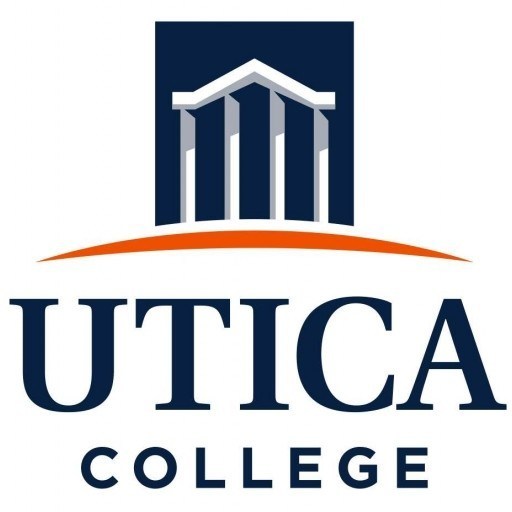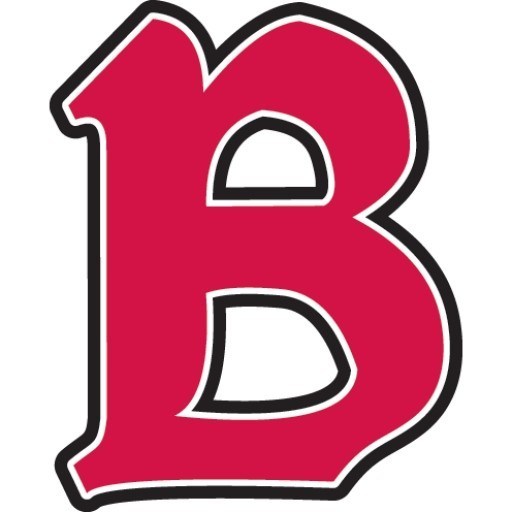The government and politics major at Utica College enables you to gain a comprehensive understanding of the principles, processes, and structure of power and authority through richly interactive classroom learning, research, and real-world experiences.Taught by an accomplished faculty, the program focuses on the development of knowledge and skills that are highly valuable for the globalized world, with in-depth study of authority, diversity, leadership, conflict resolution, and collective mobilization. Classes are highly interactive and designed to enhance the student's abilities to comprehend, analyze, and communicate.
Field of study: Political Science and Government, General
Program Overview:
The Government and Politics program at Utica College offers students a comprehensive exploration of the fundamental principles and structures that shape political systems, government institutions, and policy processes both in the United States and globally. This program is designed to develop students’ critical thinking, analytical skills, and understanding of political theory, comparative politics, international relations, and public policy. Students will engage with a diverse curriculum that covers topics such as the American political system, state and local government, political philosophy, international organizations, and contemporary political issues. Through hands-on learning experiences, including internships, research projects, and seminars, students will gain practical knowledge and skills essential for careers in government, public service, law, journalism, or further graduate study.
The curriculum emphasizes active engagement with current political debates and fosters an understanding of the role of government and politics in addressing societal challenges. Courses include an introduction to American government, comparative politics, international relations, political theory, and public policy analysis. Students are encouraged to analyze political behavior, evaluate policy proposals, and explore the ethical dimensions of governance. The program aims to prepare graduates to analyze complex political issues, participate effectively in civic life, and contribute to the development of policies that promote social justice and economic development.
Many students take advantage of the program’s experiential learning opportunities, including internships with local government offices, non-governmental organizations, and political campaigns. These experiences allow students to apply classroom knowledge in real-world settings, build professional networks, and enhance their career prospects. Additionally, the program offers seminars and workshops that focus on skills such as public speaking, policy writing, and research methods. Graduates from the program are well-equipped to pursue careers in government agencies, advocacy groups, international organizations, or to continue their education in graduate programs related to law, public administration, or international affairs.
Overall, the Government and Politics program at Utica College provides a rigorous and engaging educational experience that prepares students to be informed citizens, effective policymakers, and future leaders in the dynamic world of politics and governance.
The Government and Politics program at Utica College offers a comprehensive curriculum designed to equip students with a deep understanding of the political landscape, governmental structures, policy analysis, and the theoretical frameworks underpinning political processes. The program requires students to complete a series of core courses that cover constitutional principles, comparative politics, international relations, and American government. Students are encouraged to engage in critical analysis and develop skills in research, policy formulation, and effective communication.
In addition to the core curriculum, students have the opportunity to choose electives aligned with their interests, such as homeland security, public administration, or global politics. The program emphasizes experiential learning through internships, research projects, and participation in political debates and simulations. To successfully graduate, students must complete a specified number of credits, including a capstone project or thesis that demonstrates their ability to analyze and synthesize political issues.
Utica College also promotes the development of ethical understanding and civic responsibility as integral to the study of government and politics. Students are expected to participate actively in class discussions, stay informed about current political events, and participate in extracurricular activities related to government and civic engagement. The program prepares graduates for careers in government, public policy, law, civil service, journalism, and international organizations. Continuous assessment through examinations, papers, presentations, and projects ensures mastery of concepts and readiness for professional challenges. Overall, the program combines theoretical instruction with practical application to create well-rounded political science professionals.
Want to improve your English level for admission?
Prepare for the program requirements with English Online by the British Council.
- ✔️ Flexible study schedule
- ✔️ Experienced teachers
- ✔️ Certificate upon completion
📘 Recommended for students with an IELTS level of 6.0 or below.
The Government and Politics program at Utica College offers a variety of financing options to support students throughout their academic journey. Students enrolled in this program can take advantage of federal and state financial aid programs, including the Free Application for Federal Student Aid (FAFSA), which is essential for determining eligibility for grants, loans, and work-study opportunities. Utica College participates in federal Pell Grants, which provide need-based assistance to undergraduate students, and in federal student loan programs such as Direct Subsidized and Unsubsidized Loans, offering low-interest borrowing options to help cover tuition and other educational expenses.
In addition to federal aid, the college offers institutional scholarships based on academic achievement, leadership qualities, and financial need. These scholarships can significantly reduce the cost of attendance and are renewable annually, provided students maintain satisfactory academic progress. Utica College also encourages students to explore external funding sources, including state scholarships and private grants, which can be combined with college-provided aid to maximize financial support.
Students interested in financing their education should complete the FAFSA early in the academic year to ensure full consideration for available aid programs. The college's Financial Aid Office provides personalized guidance and resources to help students understand their options and complete necessary applications. For those who require additional funding, the college offers private loan alternatives, which can be negotiated with lenders that specialize in educational financing.
Furthermore, part-time work opportunities on campus and internships related to government and politics can help students supplement their income while gaining valuable experience. Utica College also promotes payment plans that allow students to spread out tuition payments over the semester, easing the financial burden. Overall, the college's comprehensive approach to student financing seeks to make higher education accessible and affordable, fostering an environment where students can focus on their academic and career goals without undue financial stress.
The Government and Politics program at Utica College offers students a comprehensive understanding of the fundamental principles and practices of government, political systems, public policy, and international relations. Designed to prepare students for careers in government, public service, politics, law, or further academic pursuits, the program combines rigorous coursework with practical experiences. Students explore topics such as American government, comparative politics, international affairs, political theory, and public administration, gaining insights into how political institutions operate and influence society. The program emphasizes critical thinking, analytical skills, and effective communication, enabling graduates to interpret complex political issues and develop well-informed solutions.
Utica College's curriculum balances theoretical frameworks with real-world applications, often incorporating opportunities for internships, research projects, and engagement with political organizations. This approach ensures that students not only acquire foundational knowledge but also develop practical skills relevant to careers in government agencies, non-profit organizations, advocacy groups, and private sector firms. Faculty members are experienced professionals and scholars who bring current political issues into the classroom, fostering an environment of active learning and debate.
Furthermore, the program offers students the chance to engage in extracurricular activities such as student government, debate teams, and political clubs, providing leadership opportunities and a platform to apply their learning outside of the classroom. Students are encouraged to participate in study-abroad programs, internships, and community service to broaden their understanding of political systems in diverse contexts. The curriculum is regularly reviewed and updated to reflect recent developments in political science and global affairs, ensuring graduates are well-equipped to navigate the rapidly changing political landscape.
Utica College also emphasizes ethical considerations and social responsibility in governance and politics, preparing students to become informed, ethical, and effective leaders. Graduates of the program often pursue master’s degrees in political science, public administration, law, or related fields, or directly enter careers in government service, political consulting, journalism, or international organizations. Overall, the Government and Politics program at Utica College aims to produce knowledgeable, skilled, and engaged citizens ready to contribute positively to their communities and beyond.







